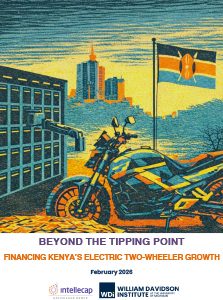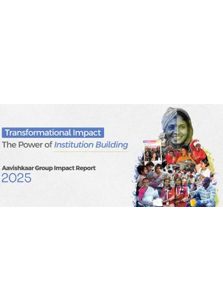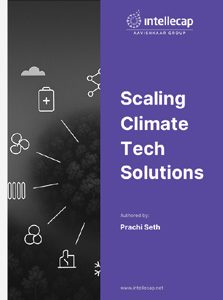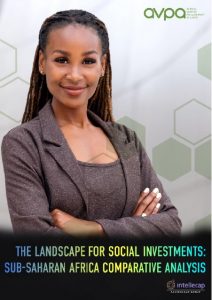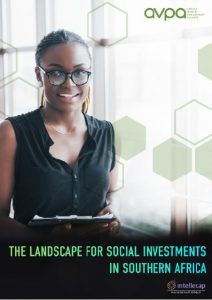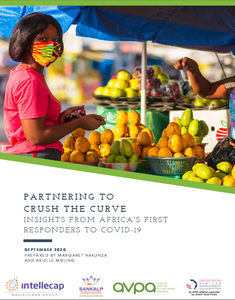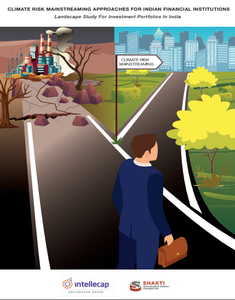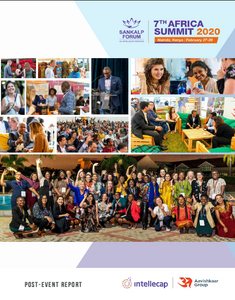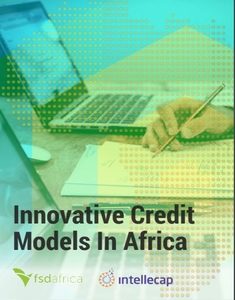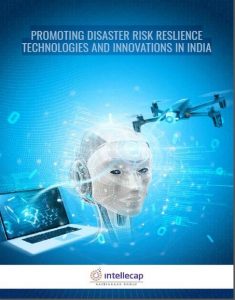TRENDING
-
Beyond the Tipping Point – Financing Kenya’s E2W Growth Intellecap WDI Final
Published: February, 2026 -
Transformational Impact- The Power of Institution Building
Aavishkaar Group Impact Report 2025Published: January, 2026 -
Scaling Climate-Tech Solution
Published: November, 2025
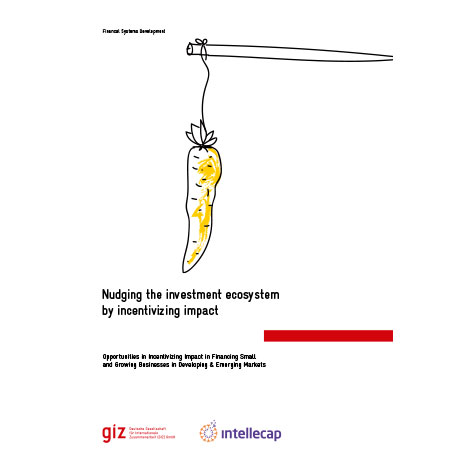
Nudging The Investment Ecosystem By Incentivizing Impact
PUBLISHED: June, 2018
Opportunities in Incentivizing Impact in Financing Small and Growing Businesses in Developing & Emerging Markets
This paper is a summary of fresh ideas on how to channel more capital into impact investing and incentivize impact creation. Building on insights generated by experts at the BMZ hosted conference Financing Global Development – Leveraging Impact Investing for the SDGs, the paper furthers the conversation on Impact Measurement and Management, IMM 2.0, through brainstorming practical ideas and viewpoints in the impact investing value chain: those who provide capital, those who manage it, and those who receive it. This included close to 50 stakeholders, including fund managers, DFIs, intermediaries, entrepreneurs, governments, CSOs and others.
The discussion, conducted in the form of a ‘design lab’ by Deutsche Gesellschaft für Internationale Zusammenarbeit (GIZ) GmbH, Intellecap, and the Swiss Agency for Development and Cooperation (SDC), aims to start a conversation on how to maximize impact by channeling capital into small and growing businesses (SGBs) as a way to expedite achievement of SDGs (Sustainable Development Goals). During the session, industry leaders like FMO, Vox Capital, and Roots of Impact had shared case studies of good practices in incentivizing impact along the investment chain. This formed the basis of brainstorming on development of new ideas on innovative instruments that could nudge the ecosystem towards more actively pursuing and scaling impact.
The result is an analysis of the barriers in the impact investment value chain highlighted during the stakeholder conversations, and key insights on how to overcome them (for example, the need for transparency, standardization, leadership, etc.). In addition, the workshop collated a list of potential ‘wild ideas’ to like impact currency, impact rewards, impact index, online market places for impact auctioning, and a give-back distribution impact support system, designed to incentivize increased levels of investment along the value chain. The practical approaches suggested by stakeholders fit well with the existing impact measurement and monitoring frameworks like GIIN’s IRIS and Intellecap’s PRISM and hold the potential to guide impact capital more efficiently by leveraging good practices.

The Financial Lives of Government Employees – Potential of Digital Finance in Sierra Leone
PUBLISHED: July, 2018
This report documents findings from research on the financial lives of government employees in Sierra Leone, commissioned by the Government to People Payments Project – Building Digital Ecosystem funded by USAID. Intellecap supported UNCDF, Government of Sierra Leone and Bank of Sierra Leone for conducting the research.
There are 80,000 government employees in Sierra Leone who receive salaries digitally in their bank accounts. Insights about their financial lives can help build a viable business case for DFS to expand access to a wide range of financial services for underserved communities in Sierra Leone. Such insights can inform strategies and use cases that the UNCDF and the Government of Sierra Leone can develop to promote DFS in the country. The National Strategy for Financial Inclusion 2017 – 2020 also refers to the need to identify and digitize use cases that will lead to habitual usage, and achieve Sierra Leone’s commitments to the ‘Better Than Cash Alliance’.
Recognizing the need and opportunity, UNCDF supported the Financial Lives Survey of government employees who receive their salaries digitally in Sierra Leone. Intellecap designed the survey to understand how government employees utilize salaries transferred into their bank accounts, their awareness of and access to DFS, avenues to use them and their perceptions about financial services and digital financial transactions. This report contains insights from the survey about potential customers of DFS and recommendations on use cases that could be piloted as an initial step to improve DFS adoption in Sierra Leone.
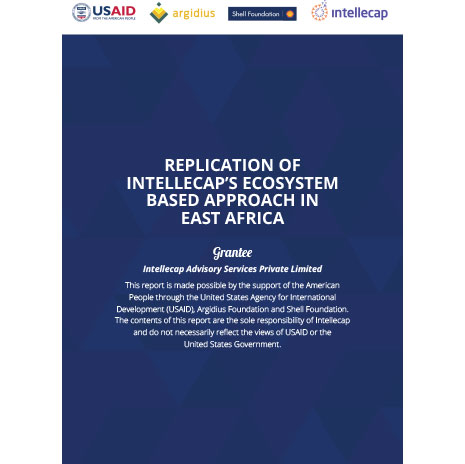
Replication of Intellecap’s Ecosystem Based Approach in East Africa
PUBLISHED: July, 2018
Intellecap has sought to replicate its ecosystem-based approach to East Africa by bringing
together capital, knowledge and networks to support SGBs at two levels: (i) provide direct support
to SGBs in the form of acceleration, fund-raising, technical assistance, innovation transfer, and
market linkages, and (ii) discover and engage critical ecosystem players such as corporations
(both local and international), accelerators, other development sector players in supporting SGBs.
In the three-year period since the launch of our initiative to replicate our ecosystem-based
approach for accelerating entrepreneurship support to SGBs in East Africa, we have received
generous support not only from our funders, but also from a number of local and international stakeholders such as development institutions, private sector entities, and industry associations.
Over the last year, we have replicated our advocacy platform (Sankalp), angel investment network
(I3N) advisory services (consulting & investment banking), virtual incubation platform
(StartupWave) and impact measurement platform (PRISM) as envisaged at the beginning of our
programmatic support. The development and adaptation of StartupWave for East Africa has
resulted in over 450 sign-ups for our early stage enterprise support activities and partnerships with
over 30 incubators / accelerators. Similarly, PRISM, our impact measurement platform, has
garnered interest from a wide variety of players to measure the impact of their programs.
All Publications
-
The Landscape for Social Investments: Sub Saharan Africa Comparative Analysis
PUBLISHED: November, 2020READ MORE -
The Landscape for Social Investments in East Africa : Intellecap Africa and AVPA Report 2020
PUBLISHED: November, 2020READ MORE -
The Landscape for Social Investments in Southern Africa: Intellecap Africa and AVPA Report 2020
PUBLISHED: November, 2020READ MORE -
The Landscape for Social Investments in West Africa : Intellecap Africa and AVPA Report 2020
PUBLISHED: November, 2020READ MORE -
Partnering to Crush the Curve: Insights from Africa’s First Responders
PUBLISHED: October, 2020READ MORE -
Intellecap With Shakti Foundation Brings Out A Report On Climate Risk Mainstreaming – Approaches For Indian Financial Institution
PUBLISHED: October, 2020READ MORE -
Sankalp Africa Summit 2020- Report
PUBLISHED: September, 2020Tags: Sankalp Forum,Africa, Sankalp Africa Summit 2020READ MORE -
Innovative credit models in Africa – An FSD Africa and Intellecap Publication
PUBLISHED: July, 2020READ MORE -
Promoting Disaster Risk Reslience Technologies And Innovations In India_All Stakeholders
PUBLISHED: June, 2020READ MORE

The Landscape for Social Investments: Sub Saharan Africa Comparative Analysis
PUBLISHED: November, 2020
Social investment is an umbrella term that brings together diverse categories of funders aiming to achieve social and/ or environmental impact. Broadly, social investments include financial and non-financial support deployed via venture philanthropy, impact investing (with a focus on investing for impact), and socially responsible investing. Social investment methodologies have proven to be a powerful strategy to create sustainable and scalable social and environmental impact by enabling diverse social investors to collaborate for a more significant impact on the achievement of the SDGs. Collaboration across different types of capital and investment strategies is needed, referred to as the “continuum of capital”.
Established in 2018, the African Venture Philanthropy Alliance (AVPA) is a Pan-African network that seeks to drive a transformative social investing agenda in the continent. AVPA leverages the experience and momentum gained by the European Venture Philanthropy Association (evpa.eu.com) and the Asian Venture Philanthropy Network (avpn.asia) – thriving networks that together have over 800 members in more than 50 countries and are proven catalysts for mobilizing capital and helping members to deploy it more effectively to drive positive change. AVPA facilitates the flow of human, intellectual and financial capital, not only within Africa, but also with the vast network of members across the 50+ countries outside of Africa. AVPA seeks to support the sector through several key service lines offered to its members.
Please read and download our regional social investments landscape reports:
1. The Landscape for Social Investments in East Africa : Intellecap Africa and AVPA Report 2020
2. The Landscape for Social Investments in Southern Africa: Intellecap Africa and AVPA Report 2020
3. The Landscape for Social Investments in West Africa : Intellecap Africa and AVPA Report 2020

The Landscape for Social Investments in East Africa : Intellecap Africa and AVPA Report 2020
PUBLISHED: November, 2020
The Landscape for Social Investments in Africa, maps the diverse field of social investment across East, West and Southern Africa. In each of these regions, hundreds of institutions are deploying capital to achieve ambitious social and environmental goals.
Social investors include foundations, corporates, family offices, high net worth individuals, sustainability-aligned fund managers, development finance institutions, bilateral and multilateral donors, governments, diaspora, and faith-based organisations.
This report maps the landscape of social investments in East Africa with a deep dive focus on Kenya, Uganda and Tanzania, and a high-level assessment of Rwanda, Ethiopia and South Sudan. This report maps these providers of social capital, their investment strategies, and opportunities for collaboration amongst the various investors. Much more innovation and collaboration amongst social investors is needed if African countries are to close the enormous Sustainable Development Goals (SDG) financing gap.

The Landscape for Social Investments in Southern Africa: Intellecap Africa and AVPA Report 2020
PUBLISHED: November, 2020
The Landscape for Social Investments in Africa, maps the diverse field of social investment across East, West and Southern Africa. In each of these regions, hundreds of institutions are deploying capital to achieve ambitious social and environmental goals.
Social investors include foundations, corporates, family offices, high net worth individuals, sustainability-aligned fund managers, development finance institutions, bilateral and multilateral donors, governments, diaspora, and faith-based organisations.
This report, maps the landscape of social investments in Southern Africa with a deep dive focus on South Africa, Zambia, and Mozambique, and a high level assessment of Angola, Botswana, and Zimbabwe. This report maps these providers of social capital, their investment strategies, and opportunities for collaboration amongst the various investors. Much more innovation and collaboration amongst social investors is needed if African countries are to close the enormous Sustainable Development Goals (SDG) financing gap.

The Landscape for Social Investments in West Africa : Intellecap Africa and AVPA Report 2020
PUBLISHED: November, 2020
The Landscape for Social Investments in Africa, maps the diverse field of social investment across East, West and Southern Africa. In each of these regions, hundreds of institutions are deploying capital to achieve ambitious social and environmental goals.
Social investors include foundations, corporates, family offices, high net worth individuals, sustainability-aligned fund managers, development finance institutions, bilateral and multilateral donors, governments, diaspora, and faith-based organisations.
This report maps the landscape of social investments in West Africa with a deep dive focus on Nigeria, Ghana and Ivory Coast, and a high-level assessment of Senegal, Sierra Leone and Liberia. It analyses strategies used by various international and domestic social investment capital providers. This report maps these providers of social capital, their investment strategies, and opportunities for collaboration amongst the various investors. Much more innovation and collaboration amongst social investors is needed if African countries are to close the enormous Sustainable Development Goals (SDG) financing gap.
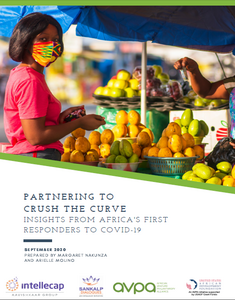
Partnering to Crush the Curve: Insights from Africa’s First Responders
PUBLISHED: October, 2020
It is no secret that the Covid-19 pandemic hi t us like a tsunami , unawares and unprepared. As the pandemic continues to overwhelm countries around the globe, it has transformed the way we live, work and even interact within our communities.
Africa was one of the last continents in the world to contract the virus, and watched the rest of the world battle the pandemic, knowing it would eventually hit and knowing that the impact would be devastating.
To begin with, most countries in Africa have precious healthcare systems in place and the vast major i ty of people have no access to health insurance. For instance, 4 out of 5 people in Kenya lack health insurance.
[ 1 ] Africa witnessed first-world countries with advanced health care systems, hospitals, and equipment get quickly over run and overwhelmed by the virus. If they couldn’t handle Covid-19, how on earth would Africa manage this disease?
Furthermore, Africa’s informal economy makes up approximately 41% of its GDP.
[2] The very nature of this informal economy has no cushioning – for those who are informal workers, not working means not getting paid. And not getting paid means you can’t feed your family for every day you can’t work. An economic slowdown in Africa means that a vast majority of people will no longer be able to feed their families on a daily basis. Stay-at-home mandates for many low-income day laborers in Africa means they will be starving. Most people would run the risk of exposure to Covid-19 by working, rather than starve because they can’t generate an income staying at home.
To address these issues, various organizations have been taking urgent actions to assist the families living in these communities, but most organizations are still testing the waters to see what works and what doesn’t . Some are adapting already existing measures to better suit the crisis, but all are piloting and pivoting as they go. With most African countries facing similar challenges, from poor and ill equipped healthcare systems to over run informal settlements and congested public transport , there is a great opportunity for these initiatives to learn from each other ,within and across borders, to lessen Covid-19’s impact on the continent .
We launched this series to facilitate learning, highlight successful examples, and promote collaboration across the African continent . The approaches for dealing with Covid-19 in Africa will – and should – look distinctly different from other parts of the World. There is no silver bullet , but we hope these learnings and insights will help not only shorten learning curves for dealing with Covid-19, but ultimately, rebuild our ecosystems to be stronger and more resilient in the future.
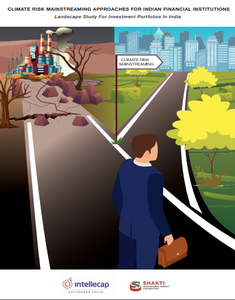
Intellecap With Shakti Foundation Brings Out A Report On Climate Risk Mainstreaming – Approaches For Indian Financial Institution
PUBLISHED: October, 2020
India alone lost over USD 80 billion in economic losses over two decades (2000-2019) due to climate change. According to estimates, climate change could cost businesses and investors across the world over USD 1.2 trillion over the next 15 years.there is a growing realization that the community including businesses and investors need to be more proactive in incorporating climate risk considerations in their operations along with Government which need to include climate change resilience initiatives in its policies. This initiative aims to map the understanding of financial institutions in India on climate risk mainstreaming requirements as well as implementation strategies.
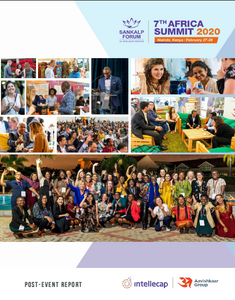
Sankalp Africa Summit 2020- Report
PUBLISHED: September, 2020
The report of the Sankalp Africa Summit 2020 is all about our February 2020 summit where we convened 1268 delegates from nearly 40 countries to discuss, deliberate, and collaborate on the role of entrepreneurship in achieving the Sustainable Development Goals.
Convened in Nairobi, Kenya, the Sankalp Africa Summit 2020 celebrated some of the most promising enterprises from across the continent.
Over the two days of the Sankalp Africa Summit 2020, we hosted 50+ sessions which included main plenaries, impact lounges, panel discussions, debates, design hacks, interactive workshops, masterclasses, deal rooms, member meetings, film screenings, and a dance workshop followed by an exclusive dinner for women leaders. Sankalp and its partners curated sessions around sectors such as Agriculture, Livelihoods, Healthcare, Financial Inclusion, Clean Energy and Smart Climate, the Circular Economy, Water and Sanitation, and Frontier Economies, as well as a focus on crosscutting themes such as Technology for Good, Talent, and Gender.
Aligned to the Summit’s theme, ‘Collaborate 2030: Scaling Entrepreneurship for the Global Goals,’ the main plenary session sought to take on a holistic self-audit view on whether the Sustainable Development Goals really were achievable in the next 10 years and could create meaningful impact for those living at the bottom of the pyramid, or if they were merely symbolic to further international political agendas. The discussion was also around what more we all need to do to increase the world’s chances of realizing the SDGs in just the next 10 years.
This year at Sankalp Africa, we explored some new engagement opportunities, including not only a deal room for investors to connect with other investors, but a new deal room for entrepreneurs themselves to identify potential business partners and leads. We screened three films at Sankalp this year, highlighting film as a tool for social change. We endeavored to reduce our own carbon footprint by using upcycled lanyards, replacing all single-used water bottles with re-usable aluminum bottles and water stations, and ensuring that the event’s waste was disposed of responsibly.
With over 1,200 delegates attending the 2020 Africa Summit, Sankalp continues to celebrate the growth of the entrepreneurial ecosystem across diverse stakeholders who are working to resolve some world’s most pressing challenges. As we are all experiencing the Covid-19 pandemic, we are going into uncharted territory together. If nothing else, recent events have demonstrated the critical importance of community support, alliances for impact, and ecosystem building. We are committed to our role in convening the entrepreneurship community for the Global South and will continue to do so – across global, regional, and local convenings, both digitally and inperson
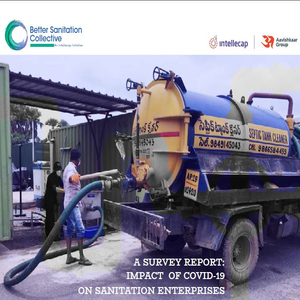
A SURVEY REPORT: IMPACT OF COVID-19 ON SANITATION ENTERPRISES
PUBLISHED: July, 2020
Over the last few months, the spread of COVID-19 pandemic has led countries across the globe to witness an unprecedented impact on healthcare systems in particular and economies as a whole. This modern age pandemic has caused a major economic slowdown with a loss of around $8.8 trillion, which is around 9.7% of the global GDP. Studies across the globe suggest that the impact of this pandemic has been felt across industries with the small and medium enterprises (SMEs) being the worst hit.
The story is no different in India, where the increasing numbers of COVID-19 cases have caused severe health and economic crisis. As most economic activities remained halted during lockdown, a lot of businesses in the MSME category faced the risk of extinction due to decreased demand for non-essential commodities, labour shortage, credit deficit and almost no working capital. Since the SMEs contribute to 29% of the GDP, and employ more than 11 crore people, it is imperative to study, and understand how they have been impacted and design measures to support them.
At Better Sanitation Collective – an initiative by Intellecap, we recognize the role of sanitation enterprises in the current scenario and the challenges they may have faced in being operational during the pandemic. Hence, to better understand the impact of COVID-19 pandemic on them and the ecosystem in which they function, we conducted a survey, and reached out to 200 enterprises. The survey primarily focused on capturing the impact of the pandemic on their business operations, their response to these challenges and additional support needed to tide over the ongoing crisis.
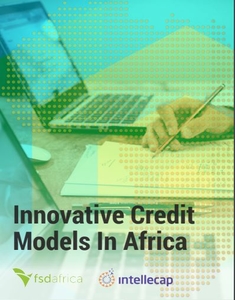
Innovative credit models in Africa – An FSD Africa and Intellecap Publication
PUBLISHED: July, 2020
Established in 2012 and supported by UK aid, FSD Africa is a specialist development agency working to build and strengthen financial markets across sub-Saharan Africa.
FSD Africa is incorporated as a non-profit company limited by guarantee in Kenya. It is funded by UK aid from the UK government. They work to reduce poverty through a ‘market systems development’ approach, which means we aim to address the structural, underlying causes of poverty by improving how financial market systems function.
As part of FSD Africa work in credit markets, they aim to contribute to a greater understanding of factors that inhibit the growth of credit markets in sub-Saharan Africa. FSD Africa partnered with Intellecap to undertake research on market innovations in retail credit markets.
The objective was to assess innovative models emerging in selected countries – South Africa, Nigeria, Kenya, Tanzania and Rwanda – and to identify the critical factors for success. The region continues to face a myriad of challenges across the spectrum of the lending value chain, which affect credit access. These include low-income levels, poor infrastructure, weak policy and a high cost of credit.
In the face of these challenges, innovative digital technologies and business models are emerging in an attempt to solve credit access challenges. The report identifies over 30 credit innovations that leverage technology, multiple data sources and partnerships to enhance access and delivery of financial services to underserved segments across the continent.
The insights generated through the research are intended to highlight market opportunities and challenges, and will be of value to policymakers, regulators, credit providers, financial sector analysts, as well as others interested in supporting credit market growth in the region.
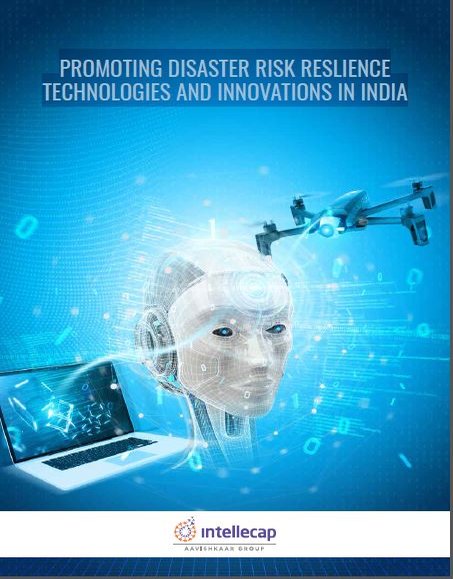
Promoting Disaster Risk Reslience Technologies And Innovations In India_All Stakeholders
PUBLISHED: June, 2020
The increased frequency and intensity of disaster risks in recent years has led to huge social and economic losses, both in India and around the world. India, being a climate-sensitive nation, with a large vulnerable population, unplanned physical infrastructure development, and poor institutional capacity is worse affected by disaster-related impacts.
It is extremely important to promote the application of innovations and technology for Disaster Risk Resilience (DRR) aimed at improving the adaptive capacity of communities and reducing losses due to disaster-related impacts. Considerable efforts are being taken towards enhancing the role of technology in reducing vulnerabilities of communities and ecosystems-at-risk, preventing risks, and building the resilience of critical infrastructure.
In India, the Government, along with the private sector, has been widely using technologies such as Geographic Information System (GIS), weather forecasting and predictive analytics, early warning systems and remote sensing to identify risks and improve response to disasters. However, the spread and availability of disruptive technologies (such as artificial intelligence, blockchain, internet of things etc.) across disaster management scenarios (pre, during and post) vary amongst developed and developing nations. It is evident that an increased implementation of advanced technology for DRR will create new and improved methods which might enable evidence-based policies. The Government of India (GoI) recognizes that investment in DRR requires evidence-based risk management methods and effective application during emergencies.
This study thus aims to; (a) map the landscape of technologies that can be used in the DRR space, (b) define the current ecosystem, (c) examine the challenges, and (d) provide suggestions for promoting DRR technologies and innovations in India. We have prepared two version – one for the innovators and other for stakeholders who need to support the sector in India.
Reports & Policies
Our Impact Map

Sign up for our newsletter
© Copyright 2018 Intellecap Advisory Services Pvt. Ltd. - All Rights Reserved



